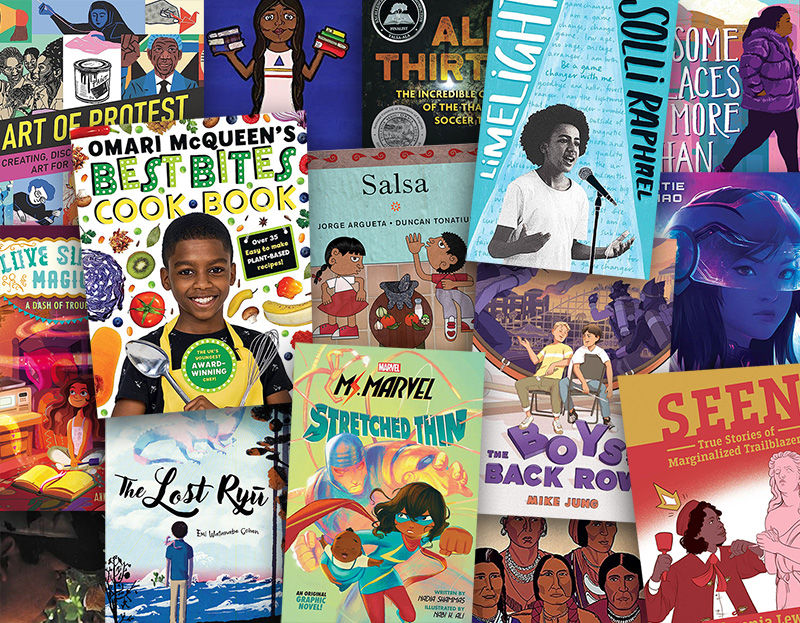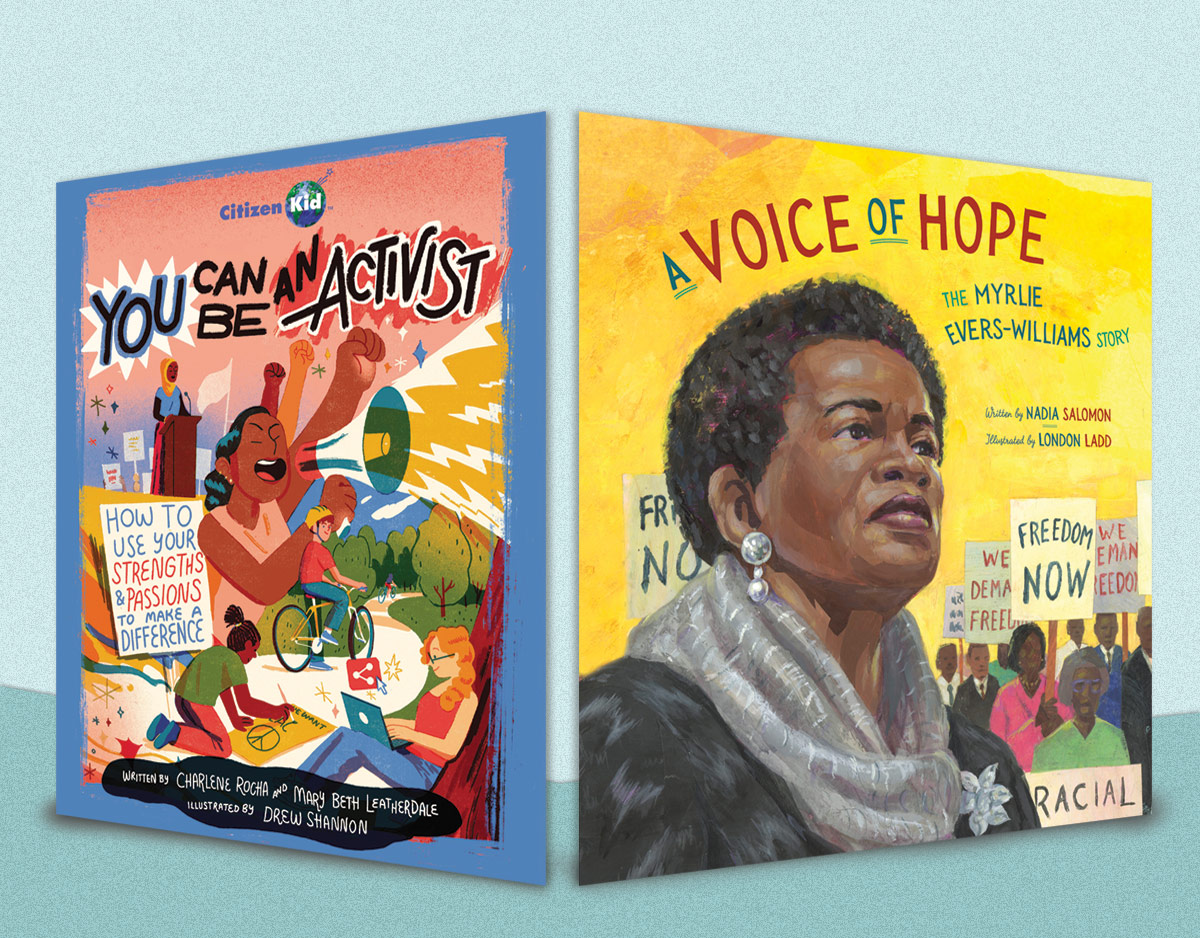Warm-Me Time with Miss Teresa, a guest post by Dionna L. Mann

I was on the phone with Mrs. Olivia (Ferguson) McQueen (1942-) —the granddaughter of Dr. George Rutherford Ferguson (1877-1933), an African American physician who served the Vinegar Hill community in Charlottesville long before integration.
“Have you spoken with Teresa Walker Price?” Mrs. McQueen asked regarding my attempt to learn more about some photographs I wanted to use in my MAMA’S CHICKEN & DUMPLING’s author’s note.
ADVERTISEMENT
ADVERTISEMENT
Out of embarrassment I paused. I had to admit I hadn’t heard of Mrs. Teresa (Jackson) Walker-Price.
“She’s as old as the hills,” I remember Mrs. McQueen saying. “Try calling her.”
I wondered: why hadn’t I come across the name “Teresa Walker-Price” while doing research about Vinegar Hill, the thriving African American commercial and residential neighborhood that is the setting of my debut novel for young readers in its final stages of editing at the time? I was disappointed at the realization that I had a research hole. After all, I had been digging and digging with madness and discovering and uncovering facts about Vinegar Hill and the larger African American community of Charlottesville of days gone by since I had switched my setting from 1941 on the South Side of Chicago, where my parents grew up. (Why I switched my setting to a smaller yet equally bustling neighborhood after my manuscript was acquired is another story altogether—one that epitomizes the advice to writers to kill their darlings.)
And yet, there it was: a missed primary resource—a breathing, flesh-and-blood one, and her name was Teresa (sounds like Tuh-ress-uh and not Tuh-ree-suh). Naturally, the moment I got off the phone with Mrs. McQueen, I searched the Internet for Teresa Walker-Price, a likely rich source of oral history about growing up in segregated Charlottesville.
Soon I discovered that Mrs. Walker-Price has a family background woven into Charlottesville African American history that stretches back to Monticello, the hilltop home of Thomas Jefferson, the third president of the United States. And the most incredible thing? Mrs. Walker-Price, whom I now know as Miss Teresa, was born the same year as my main character, Allie—1925! Mrs. McQueen was right! I needed to speak with her!
I wondered if at her age Miss Teresa would remember being ten years old in 1935—walking the streets of Charlottesville, shopping the stores on West Main Street, visiting Mr. Inge’s Grocery to buy penny candy? Would she remember details about attending Jefferson School, my main character’s school, and be able to supply me with the answers to questions I still had despite my research? Most importantly, would she be able to tell me more about Dr. Edward Stratton, Jr., the physician who served the African American community in 1935 who’s name I’d borrowed for a doctor mentioned in my novel.
I had to find out!
I clicked an online telephone book and searched for her. As I dialed the number, I could feel my heart tap dancing.
“Hello?” A strong yet elderly woman’s voice answered—clear, warm, kind.
“Mrs. Jackson Walker-Price?” I asked.
“Yes,” she said. “Who is this?”
I introduced myself, and explained the purpose of my call.
She laughed her beautiful, unforgettable laugh. “I thought you were one of those people trying to sell me something.”
I laughed, too. “Not me,” I said. “I promise.”
And so, our phone conversation ensued—easy as instant pudding—smooth, sweet, uplifting to the soul. Her recollections were crisp. Her humor was delightful. Her stories made my heart soar, my brain happy-tingle, my inside-tears flow. I was reliving history, the kind my parents and grandparents might have experienced, simply by listening to someone who had lived it, someone who remembered it, someone willing to share it. My missed research hole was being filled!
“Come by and see me anytime,” Miss Teresa said as our conversation wound up.
“Really?” I asked. “Anytime?”
“Anytime.”
And so, a few weeks later, I took her up on the offer.
I drove down Miss Teresa’s narrow street—the same width it had been since the early days of Charlottesville. There was a home renovation taking place on the opposite side of Miss Teresa’s, so there was no place to park. I swung back around to West Main Street and parked in a toy store’s parking lot located near a funeral home that began operating in 1917 to provide needed services to the African American community during a time when it was denied elsewhere. I walked a short distance toward Miss Teresa’s comfortable, brick home located in a historic neighborhood, one that once bordered Vinegar Hill before it was razed in the 1960s.
I walked up the steps, onto a fine porch, and knocked. Miss Teresa’s daughter-in-law opened the door, and invited me in. Miss Teresa, being 97 years old at the time, was descending her stairs in a mechanical chair.
She was as beautiful as her laugh. Her short gray hair her crown. Her blue eyes her jewels. Her peachy tan skin her satin robe. She rose from her throne.

“Hello, Mrs. Walker Jackson Price,” I said. “I’m Dionna Mann, the author of that children’s book that takes place in 1935 Vinegar Hill. We spoke on the phone.”
“Yes, of course!” she said. “Come in, and sit with me.”
I walked behind her, past her piano lined with photographs, through her tidy living room, and into a sitting room with walls graced by her son Franklin’s pencil, ink and charcoal sketches. She settled into a chair surround by piles of books and magazines, all of which had pages turned out, or bookmarks inserted to indicate where she’d stopped reading. A wall with inset bookshelves with barely any space stood ready to accept more from her read collection. Miss Teresa’s sitting room was a true sign that she had spent many years as a school librarian, and the obvious subject of her interest was African American history.


A dignified bust of a contemplative Black man sculpted by her son Henderson Day “Bo” Walker, Jr. peered in my direction. Mind your manners, it seemed to say. This is my Mama you’re talking to.
I sat up straighter. “Do you prefer that I call you ‘Mrs. Jackson Walker Price, or…’”
“My friends call me Miss Teresa.”
“May I call you Miss Teresa?”
“That’s what I meant,” she said, then laughed again. “So, what do you want to know.”
Where to start?
I pulled a photograph up on my phone. I believed it to be of Dr. Stratton but wasn’t sure, so I handed the phone to Miss Teresa. “Is this Dr. Edward Stratton who was a physician here in the 30s?”
“Oh, yes! That’s Dr. Stratton, all right!”
My research was confirmed!
“Did you know him?”
“Know him? He ate supper with my family.” She gestured toward her neat-as-a-pin kitchen.
I pulled in closer. “Right here in this house?”
“Oh, yes. Right here. Until his wife came.”

“And he practiced at…” I searched my notes for the location of his practice as it was listed in the 1934 Hill’s Charlottesville City Directory. Only then did I realize that Miss Teresa’s address (with an ½ added) was the same as Dr. Stratton’s practice!
“My father fixed up the basement so he could have a nice place to see his patients.”
I took a closer look at the walls inside Miss Teresa’s home. It was the place where history happened!
“What was he like?”
Miss Teresa eyes lit up as she shared how Dr. Stratton was approachable, warm and kind, how he considered her his goddaughter, how she sometimes accompanied him to the Episcopal church, how he took her along when he had to treat patients in their country homes. She was about ten then, the same age as my main character!
“He was my buddy.”
Miss Teresa painted a scene of 1935 Charlottesville that I never would have been able to envision inside the Albert & Shirley Special Collection Library at the University of Virginia. Her recollections were as clear as a hot summer day without humidity, and I loved the crystal-clear view.
Since my first in-person visit with Miss Teresa, I’ve been privileged to sit with her several more times. Each occasion I learned something new. Sometimes it was a detail about growing up African American in segregated Charlottesville. Sometimes it was about Miss Teresa’s rich family line. Sometimes it was about life or people in general. But every time, I felt what it meant to have someone from an older generation extend her hand to someone of a younger generation: Come on in, out of the cold. Sit for a while, and get yourself warm.
Thank you, Miss Teresa, for warming me, and sharing your story.
Who Is Miss Teresa?
Miss Teresa was born to Tessie and William E. Jackson, Jr. (1888-1972). Her father became locally known as “Billpost” Jackson because of his billboard advertising business. Miss Teresa’s grandmother was Nannie Cox Jackson, an intrepid and beloved domestic science teacher at Jefferson School who generously supported the school’s football team and city lunch program. After Miss Teresa graduated high school from Jefferson School in 1942, she attended Hampton University. After passing her final exams, she returned to Charlotteville to teach. She and her first husband, Henderson Day Walker, Sr. had two sons who both became well-respected visual artists. Miss Teresa taught business and typing at Jackson P. Burley High School, a historically Black city school in Charlottesville during segregation. Miss Teresa and Lorraine Williams were the first African American teachers at Lane High School after integration. Miss Teresa was also the first African American librarian in an integrated Charlottesville city public school. In 2019, Mrs. Walker-Price was awarded a Martin Luther King, Jr. Community Award. She will be 99 years young on December 14, 2024.
Check out this video clip from Dionna’s interview with Miss Teresa sharing her childhood recollections about Dr. Stratton. https://www.youtube.com/watch?v=-MXtxkgIvKg
Meet the author

ADVERTISEMENT
ADVERTISEMENT
Dionna L. Mann is a kidlit author of fiction and nonfiction. Her work has appeared in Ladybug, Cricket, and Spider. As a work-for-hire author, she’s written for Scholastic, Lerner, Capstone, Sports Illustrated Kids, and other educational publishers. Dionna loves discovering lesser-known individuals who shine within the margins of African-American history in order to share their stories with young readers. Dionna’s debut middle-grade, MAMA’S CHICKEN & DUMPLINGS, a Junior Library Guild Gold Selection, was released from Margaret Ferguson Books, an imprint of Holiday House Books for Young Readers, August 6, 2024. Find out more about the namesakes of that found their way into her novel’s historical setting at dionnalmann.com.
About Mama’s Chicken and Dumplings
Growing up in segregated 1930’s Charlottesville, ten-year-old Allie is determined to find a man for her mama to marry— but not just any man will do!
Allie’s life with Mama isn’t bad, but she knows it could be better if Mama would find someone to marry. Allie’s worst enemy, her NOT-friend Gwen, has a daddy, and Allie wants someone like that—someone to fix things when they break, someone who likes to sing, and has a kind-smile.
So Allie makes a plan—her super secret Man-For-Mama plan. She has a list of candidates with a clear top choice: Mr. Johnson, who owns the antique store. Best of all, Mr. Johnson went to school with Mama, and he wants to get reacquainted! The battle’s half won, and Allie is sure that when he tries Mama’s yummy chicken and dumplings, he’ll be head over heels.
But someone else is interested in Mama: Mr. Coles, Allie’s teacher, who’s also Gwen’s uncle! Mama can’t marry him—no way is Allie going to be related to Gwen. On top of it all, Allie’s best friend is moving to Chicago; Allie keeps getting in trouble; and everyone seems to think she’s jealous of Gwen, for some reason. Nothing is going how she planned, but Allie is determined to get things back on track toward the life she knows she and Mama both deserve. . . even if Mama doesn’t agree yet.
A Junior Library Guild Gold Standard Selection
ISBN-13: 9780823455553
Publisher: Holiday House
Publication date: 08/06/2024
Age Range: 8 – 11 Years
Filed under: Guest Post
About Amanda MacGregor
Amanda MacGregor works in an elementary library, loves dogs, and can be found on BlueSky at @amandamacgregor.bsky.social.
ADVERTISEMENT
ADVERTISEMENT
SLJ Blog Network
Should I make it holographic? Let’s make it holographic: a JUST ONE WAVE preorder gift for you
Review of the Day: Every Monday Mabel by Jashar Awan
Betty and Veronica Jumbo Comics Digest #334 | Preview
Fifteen early Mock Newbery 2026 Contenders
When Book Bans are a Form of Discrimination, What is the Path to Justice?
ADVERTISEMENT







